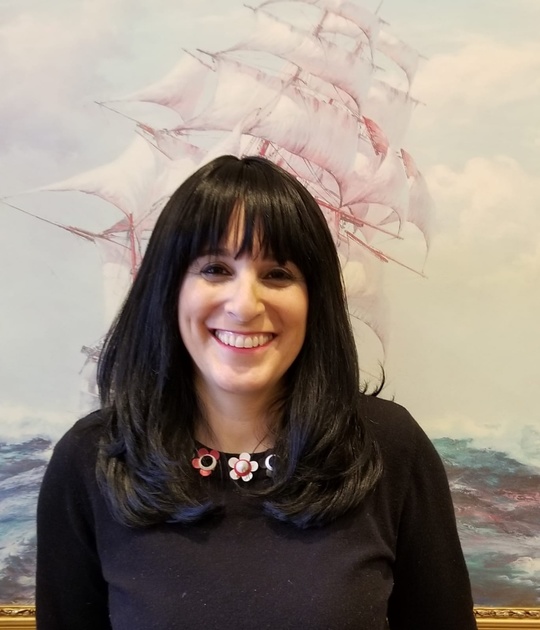
I will say it straight out. Today's column is to explain why you should choose a therapist over a life coach except for in a few very specific situations (which you will find more to the end of this page).
Yes, I am a therapist. Yes, I have very strong feelings about this. Yes, I know some excellent life coaches. Yes, I know some lousy therapists. And yes, I will say it again, and again, and again. If you need a therapist, choose to work with a therapist; not a life coach.
The number one reason for my strong stance is that coaching is an unregulated, unlicensed area of work that has no code of ethics and no scope of practice. The minute there is national or state licensing for this field of work, with its own code of ethics and clearly delineated scope of practice, same as the other fields of mental health (like psychologists, mental health practitioners, or nurse practitioners), then I welcome coaches into our field as I do my other colleagues in the licensed mental health disciplines.
When I say that coaches lack a code of ethics, I do not mean this in a personal way. I am sure coaches are ethical human beings. I am referring to the reality that they are not bound by any legal code of ethics in their practice such as confidentiality or reporting child/elder abuse (which if I break, I can lose my license to practice).
The term scope of practice refers to the parameters of the work a person is trained to do. It is a clearly written contract for any practitioner in a licensed fields, accessible to any consumer. A person who practices outside their scope of practice, can be sued or barred from practicing. For example, a nurse practitioner cannot do surgery, a social worker cannot do psychological testing, a mental health counselor cannot prescribe medication. There is no legal scope of practice for someone who calls themselves a coach. Anyone can legally call themselves a coach; whether they simply bought a plaque coach and hung it up on their office door; went to a week-long training to learn coaching; or, even a year-long training course (which is the longest type of training available; in contrast to the licensed disciplines which require about 6 years of college and at a minimum 2,000 hours of supervised work post graduation). This year-long training course is about 3 hours weekly for less than a year and requires perhaps five hours of supervised coaching training hours. And although a scope of practice may be encouraged; there is little that is learned overall and no legal way to enforce it. A joke.
Of course, many life coaches go on to do additional trainings and are self-taught. But if you ask any coach why they chose coaching versus a licensed therapist, the reason is usually an unwillingness to invest the years in college or supervision; not because coaching is their mission in life. Coaching is what they end up doing when they are limited in their ability (for religious, financial, or educational reasons) to go for a legal license. This would also explain why good therapists are more likely to be in ongoing supervision their whole career; while coaches are not. The colleagues I work with are—like me—usually in ongoing supervision with multiple supervisors and peer supervision groups that we pay for. In addition, licensed clinicians are required to take ongoing continuing education courses to maintain their licenses; something a coach has no legal requirement to do.
Are there licensed therapists who become coaches? Absolutely. And if you want specifically a coach, then by all means go to someone with a legal license that chooses to limit their practice to coaching.
The second reason I encourage someone to use a licensed therapist versus a coach is because although there is much material on how coaching differs from therapy, for the most part (and I will explain later), all of coaching is within the scope of practice of a licensed therapist and can be addressed by a therapist.
And if you tell me that the reason people use a coach is because there is less stigma around going to a coach than therapist, then I tell you that this would no more convince me than if you tell me that if your son needs his kidney removed there is less stigma going to a kidney coach than a licensed surgeon. Work it out, is what I firmly believe.
So. What are considered the differences between a therapist and life coach?
For my response, I not only read coaching material and books, but also research studies on the two. I will refer mostly to this research study whose participants were actually both licensed therapists and trained coaches. You can't get better than that!
And here were the results:
Coaches are generally more directive, interactive, and informal. They are goal/task-oriented, with looser client-practitioner boundaries, and more self-disclosure. The relationship is more collaborative, a skilled friendship or partnership.
The coaching sessions are not at fixed intervals and specific lengths of time; but rather fluid as needed, with phone calls, texts, face-to-face meetings, and irregularly spaced intervals.
The actual work of a coach is about addressing a client's present needs and working towards future goals. Although this work is within a therapist's scope of practice, the sessions and relationship differs. Therapy sessions are fixed by time and intervals; the relationship is more boundaried. Transference is never addressed as a part of coaching.
With coaching, a client must be ready to do the work, responsible for the tasks, and utilized concrete strategies to attain goals. In therapy, part of the work is working through the resistance or limitations that prevent a client from being able to achieve their goals. Because in coaching, the focus work remains only in the present; the past is not within its scope of practice. The coach only addresses specific issues in the present that impede results. The client must have a baseline of good mental health to be coached; otherwise, therapy is mandated.
According to this study, a coach must look for red flags where the client really needs therapy versus coaching:
When there are underlying issues (personality disorders; depression/anxiety; addiction; ast abuse or trauma). When there is dependency on the coach (“Only you care about me”) and transference (see past articles where this concept has been addressed) evident by client behaviors like anger towards coach, aggression, impulsivity or neediness.
These red flags are all within the scope of practice for a therapist, as is the goal-oriented work of the coach. In addition, a therapist works with the past, using introspection and focus on the interpersonal. A therapist is attuned to and uses the transference and therapeutic alliance as part of the therapy process.
So. When then should a person go to a coach?
When they are emotionally healthy and need to address one specific issue in which the coach is experienced. When there are no underlying issues or problems (or if there are, the person is seeing a therapist separately). When they are self-motivated to set goals and objectives, accomplish targeted tasks; and maintain a healthy self awareness of obstacles in the present that hinder progress, actively working to clear those obstacles.
Areas of expertise for a coach is usually in business and work; parenting being included in work. That's all.
I welcome any rebuttal from life coaches to refute any of these aspects; not about you personally but about the entire profession of coaching. We do not go to a kidney coach even if he is the best in the whole continent of Africa; we still would rather find the best surgeon. If you choose to rebut this article, it needs to be about coaching as a whole, not about your specific ability to remove kidneys despite your lack of legal licensing. And if someone is both therapist and coach and has something to say, that would probably interest us all the most.
I rest my case.
NOTE: THIS WAS ORIGINALLY PUBLISHED IN BINAH MAGAZINE'S BI-WEEKLY COLUMN THERAPY: A SNEAK PEEK INSIDE
Look me up on LINKEDIN https://www.linkedin.com/in/mindy-blumenfeld-a8067583
Check out my book THERAPY SHMERAPY, available in bookstores and through Amazon
Browse through my previously published articles on my former blog Therapy Thinks and Thoughts at frumtherapist.com/profile/MindyBlumenfeldLCSW
Read current articles in my bi-weekly column THERAPY: A SNEAK PEEK INSIDE in Binah Magazine, available on newsstands every Monday.
 Previous
Previous

